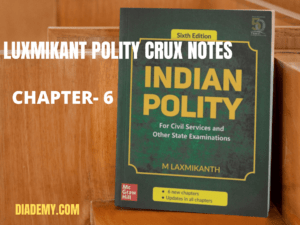
| Meaning of Citizenship | India:
1. Citizens 2. Aliens a) Friendly: subjects of those countries that have cordial relations with India b) Enemy: subjects those countries which is at war with India · Citizens: members of the state, owe allegiance, enjoy rights, shoulder responsibilities · Aliens do not enjoy all rights: they are members of another state. · Enemy aliens: Do not have fundamental rights under Article 22 (Arrest and Detention). |
| Privileges of citizenship | Article 15: right against discrimination
Article 16: right to equality of opportunity in public employment Article 19: freedom of speech and expression Articles 29 and 30: Cultural and educational rights |
| Citizens Assigning Duties | Citizens are assigning duties –
· Both naturalised citizen & citizen by birth can hold office of President · In comparison, USA allows only a citizen by birth to hold the office of President. |
Provisions related to Citizenship
| chg Types of Citizens at the Commencement of the Constitution | |||||||||||||||||
| Article-5 | Person having domicile In India:
1. Born in India 2. Either parents or Both Born in India 3. If he has been ordinary resident for 5 years before commencement of the Constitution. |
||||||||||||||||
| Article-6 | Person migrated from Pakistan:
1. if he or either of his parents or any of his grandparents was born in undivided India 2. If he migrated a) before 19/07/1948 & he is ordinary resident OR b) on or after 19/07/1948, he can be registered – after 6 month being as resident. |
||||||||||||||||
| Article-7 | Person who migrated to Pakistan from India after March 1, 1947 but later returned 6 month being as resident preceding date of application | ||||||||||||||||
| Article-8 | Persons of Indian origin residing outside India:
1. A person who, or any of whose parents or grandparents, was born in undivided India 2. Ordinarily residing outside India 3. Registered as a citizen of India by the diplomatic or consular representative of India in the country of his residence. |
||||||||||||||||
| Other provisions | |||||||||||||||||
| Article-9 | Citizenship will be taken if he acquires membership of foreign nation. | ||||||||||||||||
| Article-10 | Citizenship is – Parliamentary Law | ||||||||||||||||
| Article-11 | Parliament acquisition and termination of citizenship | ||||||||||||||||
| Citizenship Act | 1955, 57, 60, 85, 86, 92, 03, 05, 015, 019
Further amended in – (1986, 2003, 2005) – 1. By Birth – Ø Born in India on or after 26/01/1950 but before 1/07/1987 in India irrespective of parents citizenship. Ø After 1/07/1987 – Citizen – if either his parents Indian. Ø After 3/12/2004 – Citizen – If both are Indian one is Indian & other is not illegal immigrants. Ø Child of foreign diplomats and enemy aliens. (not citizens) 2. By Descent – Ø Person born outside territory of Indian can apply if at the time of birth either of the parents is a citizen of India. Ø After 3/12/2004 born outside – should get registration with 1 Year or allotted by govt. 3. By Registration – Ø 7 year Residence, minor, Children whose parents are Indian. Ø A person who is married to a citizen of India. Ø Indian origin who is ordinarily resident in any country. Ordinarily resident – Resided in India throughout the period of 12 months immediately before making application. 4. By Naturalisation – Ø He/she must belong to country where similar provision is given for Indian citizen. Ø Either resided or been in service of GOI. Ø Can apply after 11 years of lawful residence in Indian preceding to 12 month of submitting application. Ø For persons migrated from Pakistan, Afghanistan and Bangladesh – before 31st December 2015 – belonging to Hindu, Sikh, Parsi, Christian, Jain and Buddhist – Can acquire after 5 years of lawful residence proceeding 12 months of submitting application
5. By incorporation of territory –
Loss of citizenship –
1. By Renunciation (Voluntary Surrender) 2. By Termination (on getting other Countries citizenship) 3. By Deprivation (Termination in case of fraud, misrepresent) Dual citizenship – two Limitations –
1. No Right to Vote 2. Cannot hold Constitutional post in India. |
||||||||||||||||
| NRI, PIO, OCI Cardholders |
|
||||||||||||||||
Get all essential Crux notes by clicking here https://diademy.com/product/staticcrux/